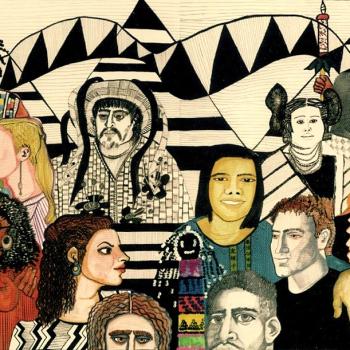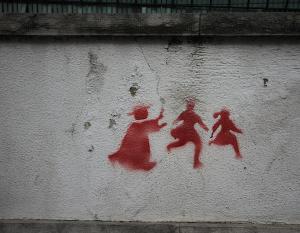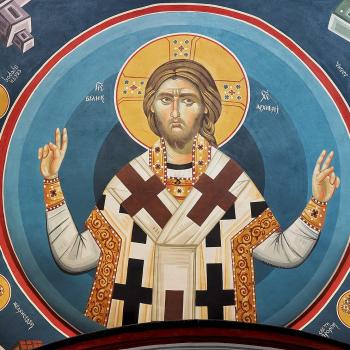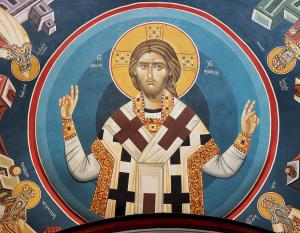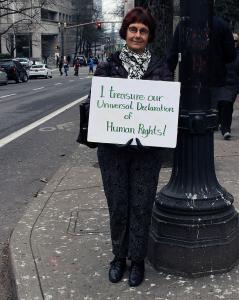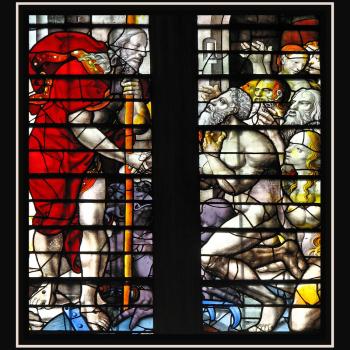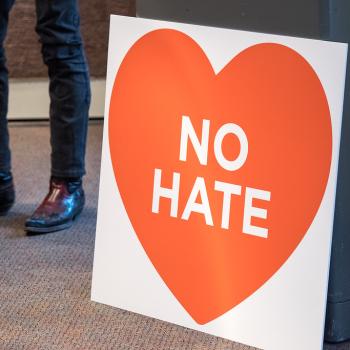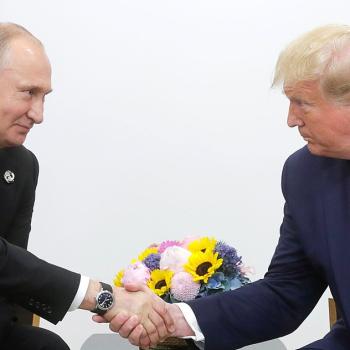Charity, if it is to be true to its inner essence and character of charity (caritas), must be done as an act of love. As love is generous and merciful, so charity must be generous and merciful. It seeks more than justice because it seeks to raise someone up beyond the expectations of justice, but it does so in a way which does not undermine justice either. This is why charity, as St. Augustine pointed out, is the end which serves as the foundation behind God’s commandments:
For it is from these that we hear this voice: The end of the commandment is charity, and God is love. Wherefore, all God’s commandments, one of which is, “You shall not commit adultery,” and all those precepts which are not commandments but special counsels, one of which is, “It is good for a man not to touch a woman,” are rightly carried out only when the motive principle of action is the love of God, and the love of our neighbor in God. And this applies both to the present and the future life.[1]
Charity, by its foundation in and of love, is always looking for what is best, and the best must always include the good which is found in and established by justice. When justice is ignored, charity is undermined, because charity in its desire for the greatest good wants such justice, wants what is right and good to be established in society.
Justice is often an elusive concept, as Plato showed in his dialogues. And yet Marsilio Ficino, in his commentaries on Plato, gives a few good insights as to what Plato thought we could say about justice. First, he explained injustice is found in whatever causes undue harm upon someone else, weakening them, making them less than what nature intended for them, harming their potential while justice seeks the fulfillment of that potential:
But justice is the excellence of man, and whoever harms a man makes him weaker in relation to justice. Yet justice never detracts from justice, just as music never destroys the work of music. This is why it is not just to harm anyone.[2]
Likewise, Ficino pointed out that justice seeks a common bond of friendship and harmony, so that within the soul, the balance is seen in acts of goodness, and in society, in acts of friendship:
But the effects of justice and injustice upon a society are the same as their effects upon the soul: the just man is at harmony with himself, and he is a friend to himself, to all men, and to the gods; for the gods are most just, and thus it is not surprising that the just man is like them and their friend. The unjust man, however, finds that his situation is the opposite in all respects.[3]
Thus, Ficino explained, when such harmony is lost in society, we have injustice. When we live in a society where a few have great wealth and resources at the expense of others, such a society must be described as unjust. Such social injustice, if not fixed, ultimately will be the foundation by which such a society is overthrown, because the imbalance will lead to strife and the people within will rise and up demand a restoration of justice:
IN THE FOURTH BOOK [of the Republic – HK] we hear of the measure that is applied to ownership and to the State to ensure that there are no excessively rich citizens and no poor citizens. For he thinks that uprisings occur and the State is destroyed from excessive abundance as well as from scarcity. He considers, too, that there is no unity, but rather division, in the State where some are poor while others are rich; and, as usually happens, the rich despise the poor, and the poor feel envy and hatred for the rich. [4]
An unjust society will have those who benefit from such injustice give all kinds of excuses as to why such injustice should not be remedied. Some, of course, will come to understand what they have been given and will not perpetuate such injustice, and like Zacchaeus the Tax Collector, will seek to give what they can back to those who have been harmed, showing that they love justice and seek after God, the Lord of Justice.[5] Others, however, will show themselves far from God as they seek not the goodness which God desires for society, but merely the continuation of their own selfish desires, proving the truth of the Proverb, “Evil men do not understand justice, but those who seek the LORD understand it completely” (Prov. 28:5 RSV).
![Visiting the Poor by Karl Girardet [Public domain], via Wikimedia Commons](https://wp-media.patheos.com/blogs/sites/637/2016/03/Visiting_the_poor_illustration_from_Le_Magasin_Pittoresque_Paris_1844_by_Karl_Girardet-300x220.jpg)
Those who try to pit charity against justice, suggesting that we should ignore a particular injustice for the sake of allowing us to perform acts of charity, undermine the very foundation of charity itself. Charity agrees with justice and seeks the restoration of lost justice, but it does so, not merely out of some sort of legal obligation but out of love. Jesus, in his harsh words against many of the Pharisees of his day, pointed out that while they might appear to be doing good by their tithes, failed in charity because they neglected justice. “But woe to you Pharisees! for you tithe mint and rue and every herb, and neglect justice and the love of God; these you ought to have done, without neglecting the others” (Lk 11:42 RSV).
Once injustice is approved, charity is lost. No one who loves someone else will step back and allow some sort of injustice befall their beloved if they are able to prevent it. If they were to say they let their beloved suffer so they could later show their beloved an act of sympathetic love, what would be demonstrated is not love but selfishness trying to present itself as love – and the same must be said about charity. If someone were to say they do not seek justice in society because they want the opportunity to show charity to those harmed by the injustice they did not prevent, they only show what they offer is not charity but vainglory. What is worse is when such supposed charity gives back not the full restoration of what was lost due to injustice, but something less. Usually, when this happens, those who give say that those who receive their charity should be grateful from the crumbs they have received, showing once again the supposed act of charity was not done out of love, but for the accolades they receive by their performance art, pretending to be charitable while in their heart of hearts, being as selfish as thy can be. It would be like some father or mother, neglecting their children by partying for several days, enjoying themselves while letting their children starve, decide at the end of the week they should give their children a meal to keep them alive, demanding in return a week of hard labor from their children for the food which they have been given. Should such parents be praised as being generous to their children? Far from it, and so, it must be said, shall we see those who pretend to give in charity while taking in excess what they can from society for themselves.
Charity, therefore, most always seek justice, though it can and should also transcend it, not by ignoring it, but by making things greater. We see this in what Jesus has accomplished for us. We receive from him not only the forgiveness of sins and the restoration of the original face of human nature, we also receive a share in the divine life, becoming as St Peter explained, partakers of the divine nature (cf. 2 Ptr. 1:4). We are made greater by God’s love for us, who in and through such love, creates a bond between God and us which lifts us up supernaturally beyond ourselves, to receive a goodness which transcends justice and yet does not run counter to it. And so, we in our charity in the world, must seek to do what we can, not only to restore justice, but to lift others up beyond its confines if and when we can. Charity cannot sit back and ignore injustice. Any who claim to act in charity but ignore injustice is to show that what they hold to is not charity but its false simulacra, and so without love, they will end up having nothing, not even the forgiveness of their own sins.
[1] St. Augustine, “Enchiridion” in NPNF1(3): 276.
[2] Marsilio Ficino, “The Commentary of Marsilio Ficino to Plato’s Republic” in When Philosophers Rule: Ficino on Plato’s Republic, Laws & Epinomis. trans. Arthur Farndell (London: Shepherd-Walwyn, 2009), 5.
[3] Ibid., 8.
[4] Ibid., 16.
[5] Zacchaeus, in his actions, showed not just justice, but charity, as he gave back more than what was necessary for the restoration of lost justice.
Stay in touch! Like A Little Bit of Nothing on Facebook:
A Little Bit of Nothing





